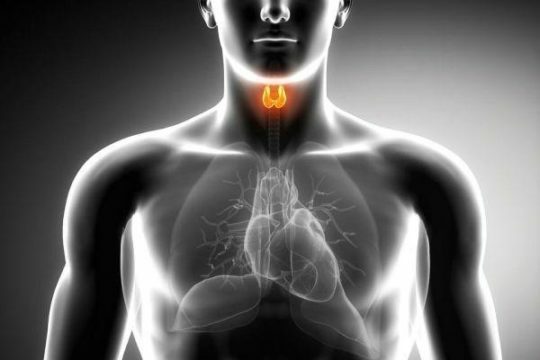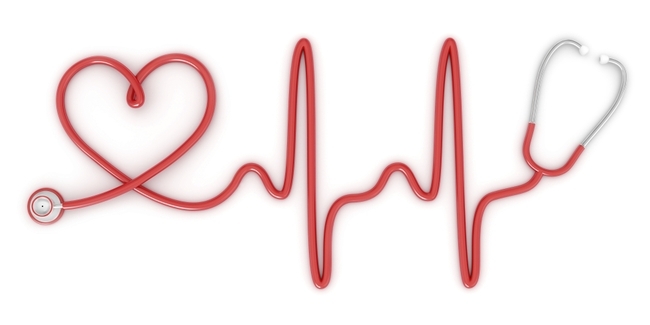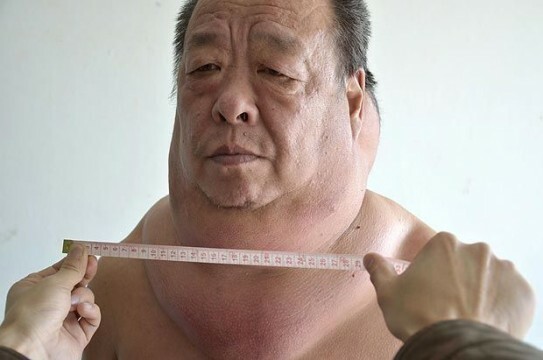Subclinical thyrotoxicosis is a rather cunning complication, as the patient continues to feel good when it manifests. However, a decrease in the level of the hormone TSH against the background of normal levels of other hormones can lead to even more serious complications up to coma or thyrotoxic crisis, which often ends in a fatal outcome.

Causes of
The disease is mainly found in patients of the age, but cases where the younger generation also face a complication are not uncommon. Its development is influenced by the following factors:
- lack of iodine intake;
- operations on the thyroid gland, complete its removal or partial;
- inflammatory processes;
- abnormalities of intrauterine development;
- use of radioactive iodine;
- latent form of Graves' disease( in the elderly);
- goiter, thyroid adenoma and other pathologies;
- postpartum period in patients who have an endocrinologist for thyroid disease;
- unreasonable use of drugs to stimulate the gland.
People who already have pathology of the thyroid gland, or those who have relatives or have relatives who have experienced thyrotoxicosis, are mainly affected by the disease. Therefore, it is especially important to regularly monitor the level of hormones in order to prevent its malfunction.
Symptoms of
Despite the fact that the disease passes for the most part without clinical manifestations, some symptoms can still be seen. Against the background of pathology, changes concern the gastrointestinal tract, the nervous and cardiovascular system.

Special attention should be paid to the heart rhythm - patients can have tachycardia, even in a calm state. And with physical exertion, even insignificant, the pulse becomes faster and increases by 30-40%.Shortness of breath, increased sweating, increased blood pressure may also indicate thyrotoxicosis.
Disorders in the nervous system manifest themselves in the form of regular mood jumps, insomnia, excessive excitability. And these conditions do not pass even after using sedatives or hypnotics. The patient's nervousness manifests itself in everything, but mental abilities remain unchanged.
Subclinical thyrotoxicosis is often accompanied by a disorder of peristalsis. The patient experiences a constant feeling of hunger, and even after the next meal he still remains hungry. Only 5% of patients lose weight against the background of thyroid disorders, the majority of patients recover. Treatment of the gastrointestinal tract is not performed if the doctor has determined that the cause of abnormalities in work is thyrotoxicosis.
Diagnosis
At the first suspicion of a failure in the production of hormones, the physician should prescribe laboratory tests:
- a clinical blood test;
- electrocardiogram;
- ultrasound of the gland.
In parallel, hormonal tests are performed. Subclinical thyrotoxicosis is characterized by a decrease in the TSH, while the hormones T4 and T3 remain at the same level. The ECG will detect the presence of tachycardia, which will become another confirmation of the diagnosis, and ultrasound results in the final diagnosis. Of course, if the hormones are more or less all right, and ultrasound does not detect abnormalities, cardiac pathologies have arisen for other reasons that the doctor should determine.
Childhood cases
Among the patients may be newborn children born from mothers suffering from thyroid disease. Screening, conducted in the hospital, should identify the disease even before discharge from the department. If the diagnosis is confirmed, immediately treated.

Symptoms of thyrotoxicosis in children are bright enough:
- cry with a hoarse;
- unnatural puffiness of eyelids and face;
- excessively dry skin;
- reduced body temperature;
- the child refuses to take the breast;
- not passing jaundice.
Detection of pathology at an early age is a fairly rare case, usually the disease manifests a little later. Treatment is done only by a doctor, he prescribes a substitution therapy, the dosage of which depends on the severity of the condition and individual characteristics. Also, the administration of thyroid hormones is prescribed, which compensate for the deficiency.
Dosage should be determined based on the patient's age, weight, and the type of inadequate hormone. In case of allergic reactions or deterioration of the child's condition, the drug is changed, but only under the supervision of a doctor.
Do not pay attention to the disease and neglect treatment, because the consequences can be too sad and irreversible.
Subclinical thyrotoxicosis in small patients may have a negative effect on bone growth, on mental development, vision, and on the general condition of the child. Late treatment and at all becomes the reason of deviations or rejections in development on all parameters. For this reason, doctors recommend that tests and examinations be performed regularly, especially if the child is at risk.
Alas, the detected disease in a small patient will cause a lifetime reception of hormonal drugs. At the same time, he will not be different from his peers and live a completely happy life.
Risk group
Thanks to statistical observations, doctors were able to find out which people are at risk and should carefully monitor their well-being:
- if there were cases of thyroid disease in the family;
- patients with diabetes mellitus or people who still have minor problems with sugar levels;
- autoimmune diseases.

Treatment of
If the patient is already taking synthetic hormonal medications and thyrotoxicosis has occurred against the background of an incorrect dosage or for other reasons, the doctor should adjust the scheme or replace the remedy.
In other cases, when the patient has never encountered a disorder of glandular function, first the patient's
condition is monitored, hormone levels jump, and only then treatment is prescribed. At a young age, when there are no concomitant chronic diseases, it is quite possible to cure pathology by adjusting nutrition and taking iodine in vitamin complexes.
If the patient is an elderly person and has subclinical thyrotoxicosis, the cause( disease) that caused a disruption in the thyroid gland activity is first determined. Treatment of the disease, which triggered the onset of thyrotoxicosis, is being carried out.
Traditional medicine
Despite the endless controversy and unacceptability of the treatment of diseases by folk medicine, subclinical thyrotoxicosis allows such therapy, and it is aimed at eliminating symptoms.
- Due to the fact that the main shock is taken by the system of the digestive tract, it is recommended to consume 100-150 g of beet daily in raw form. It has a beneficial effect on the digestive system, while the content of iodine helps in replenishing it in the body, helping the thyroid gland to return to normal.

- If the disease has been provoked by the nervous system, you must eat a decoction of valerian root. It is prepared by steaming 2 tbsp.spoons of chopped valerian 4 cups of boiling water. It is taken to 100 ml three times a day, until complete elimination of excitability and other disorders.
- If the cause of thyrotoxicosis are heart problems, then hawthorn will help. It can be used in the form of tinctures, or brew as valerian, based on the calculation of 1 tbsp.a spoonful of raw materials for 200 ml of boiling water. The course of admission is 3 weeks, and a day should drink 100 ml of decoction 3-4 times a day. Then you can take a break and repeat the course. If necessary, such therapy is carried out continuously, until the symptoms are completely eliminated or as the maintenance of the condition, so that it does not deteriorate.
pin
Subclinical thyrotoxicosis is a serious disease requiring immediate medical intervention. Timely medical care, properly selected treatment and patient's attentive attitude to the state of health ensures a rapid restoration of the hormonal background and the removal of all emerging symptoms.
Lack of proper care, as well as ignoring the doctor's recommendations, can lead to complications of the condition until the patient dies.



